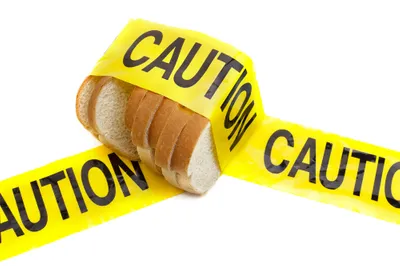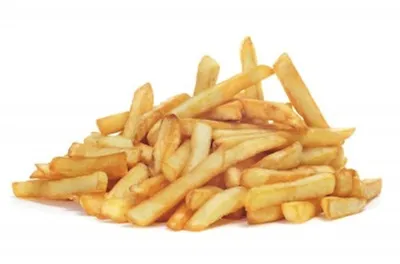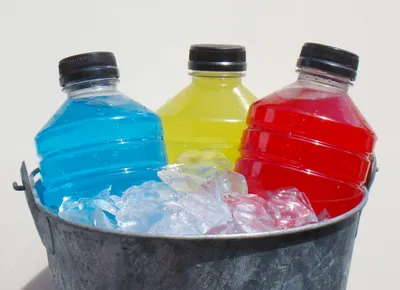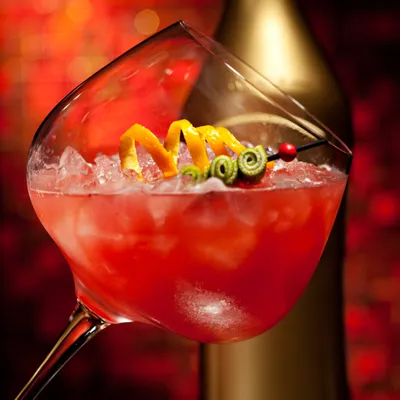Running is one of the most demanding and difficult forms of exercise to stick with on a regular basis for an extended period of time. Because of this, it is in every runner’s best interest to avoid consuming foods that directly counteract the positive impact of all those miles a runner puts in.
Taking a closer look at your diet and cutting a couple of key things from it can really go a long way to ensure that every runner maximizes the impact of their workout…
1. White Bread
If “100 percent whole-wheat” is not the first ingredient listed on a loaf of bread, put it back on the shelf and walk away. White bread, or even bread that is not 100-percent whole wheat, is essentially nutrient-stripped food. It doesn’t matter what you put on it, because the two slices you are consuming are devoid of bran, germ, fiber, iron, most vitamins, and everything else that makes bread a worthy staple of the runner’s diet.
In its place are probably a number of things you don’t want to eat like sugar, high fructose corn syrup, preservatives, and of course “refined grains” which break down super fast into simple sugars and cause your blood sugar to spike. Not exactly the type of food that compliments a runner’s regimen. Stick with 100-percent whole-wheat bread. Look for the yellow badge that adorns all bread with this ingredient.

2. Heavy Cream
If you are running to lose weight, you should completely forgo heavy cream because one serving of it will counteract a lot of the work you put in at the track. Avoid cream-based soups like chowder and bisque, cream sauces like Alfredo, and of course, things like ice cream and crème fraiche. These foods will cause your calorie count and fat intake to soar.
Heavy cream is also, well, heavy and that New England Clam Chowder will sit in your stomach like a solid mass making it very difficult indeed to move, let alone run. Unfortunately, there is no real substitute for heavy cream. Sure, you can try the Broccoli Alfredo with light cream sauce. But you probably won’t relish the results. Better to just say goodbye to this luscious liquid for good.

3. French Fries
It’s great that for lunch you now go with tuna salad instead of a burger or roast beef instead of salami. But sometimes the side that you choose, often an afterthought, can be just as bad, if not worse, than the blue plate special it comes with. This is the case with French fries, the most ubiquitous, some might say insidious, side dish out there, especially for runners.
The partially hydrogenated vegetable oils that fries cook in are the main problem. The oil (usually corn based) essentially fortifies the potatoes with unreal amounts of harmful calories, saturated fat, and omega-6 fatty acids, which counteract the omega-3 fatty acids and have inflammatory properties. That’s right. French fries actually exacerbate the inflammation that regular runners are bound to deal with. Throw in massive amounts of sodium and you’ve got a food that runners should avoid like the plague.

4. Energy Drinks
Despite the massive marketing campaign that the energy drink industry aims at runners and other fit-minded people, these liquids are not doing you any favors, other than pleasing your taste buds with their complex chemical cocktail. To start with, there is the sugar. Try to find an energy drink that isn’t loaded with it. You can’t. There is none. Then there’s all the “ingredients” which include a laundry list of artificial colors, emulsifiers, preservatives, and artificial sweeteners. None of which do anything to help you realize your goals as a runner.
So pounding a Vitamin Water or Gatorade after running a few miles is pretty much as counterproductive as it gets. Despite what you see in commercials, professional athletes are not pounding these liquids after working out. Their trainers know better. Stick with water. Throw some lemon in it if the taste is too bland for you.

5. Protein Bars
Like energy drinks, protein bars are marketed to people who are trying to complement their active lifestyle with a good diet. And like energy drinks, many of the protein bars out there are doing more harm than good. Some argue that most protein bars are really candy bars dressed up as health food. You wouldn’t devour a Snickers bar following a marathon would you? Maybe the protein bar isn’t such a good idea either. Here is why.
Many protein bars make use of sugar substitutes and artificial sweeteners that are especially problematic for runners. Take Maltitol syrup. Yes, it has fewer calories than real sugar. But it also causes gas and has a laxative effect, two things that will not help any runner. Another ingredient to watch out for is soy protein isolate. This is usually genetically modified soy and you are better off getting your protein from more natural sources like lean meat or poultry.

6. Mixed Drinks
Laying off beer because you plan to put in a couple of miles the next morning is a good idea. People go wrong, however, when they switch to mixed drinks that contain high caloric mixers like soda, juice, or pre-made mixtures. These mixtures often contain more calories than the beer you substituted it for. Worse, mixed drinks go down easier and don’t fill you up the same way beer does, which means you may have more than you usually do.
Take for example rum and coke or vodka and tea. Both the cola and the sweet tea mixers in these drinks are loaded with sugar, along with other things that runners should not go out of their way to ingest. A better idea would be to use either soda water or sparkling water, or even regular water, as the mixer. No calories and it keeps the body hydrated while consuming alcohol.

7. Crackers
A go-to snack, especially for people on the move like runners, crackers are often conduits for unexpected amounts of sugar and calories. The situation with crackers is similar to bread. You have to be careful about what type of crackers you are eating, or else what you put on them is almost pointless. With crackers, though, it is rather difficult to find the 100 percent whole wheat variety without any added sugar, high fructose corn syrup, and other unwanted additives.
If you can’t find crackers that are actually healthy and made of just a few natural ingredients, you can always use vegetables as substitute. Cucumbers and pickles work rather well as a makeshift cracker when you slice them up. Same goes for zucchini and squash. But don’t forget to mind your toppings when you switch to a vegetable cracker.
